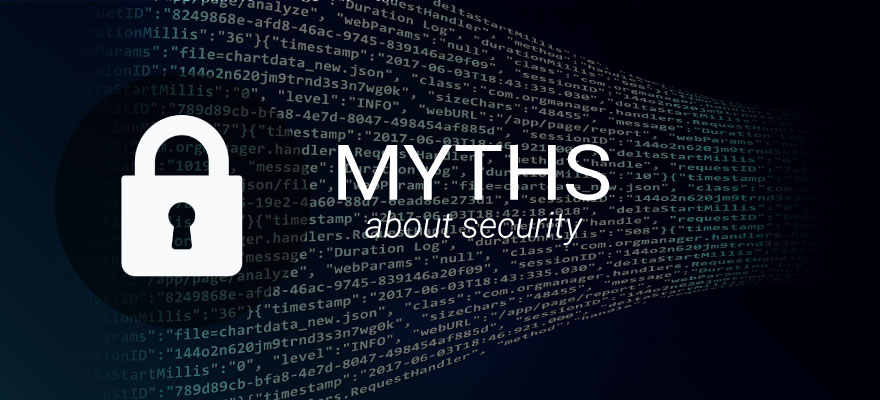Being able to access data at any time and from any place with security.
Without having to be in a secure and air-conditioned server room: the benefits of cloud are numerous and particularly interesting.
However, some companies and users still fear this kind of technology.
The main reason: a general lack of information about security and some widely accepted uncertainty ideas.
The time has come to talk about and demystify them…
1. “Data privacy is not assured in the cloud”
Hosting data on remote servers worries: a security bug exploited by a malicious hacker can quickly arrive at any time, says one.
From “leaks” of personal information to stolen photos, media coverage of such damage is skeptical about the ability of the Cloud to close its doors to unwanted eyes.
However, there is a reason to compare what is comparable. The guarantees offered by telephone operators concerning the securing of photos are out of proportion with the standards of the majority of software packages.

We are cutting to the chase of security in the Cloud. Perfectly secure solutions do exist, they tend to become more common, but it is up to the user to ask the right questions. Also, to make sure that the provider offers a service that meets his expectations.
In terms of data privacy, this requires the use of a secure encryption protocol (SSL) at a good level. This is in addition to conventional devices login/password and protection of servers by firewall.
Such measures are sometimes limited to online storage or messaging solutions. ERP, CRM or accounting software vendors, on the other hand, are more likely to protect the highly confidential data they pursue.
2. “There is no way to know where my data is stored”
Again, if some unscrupulous providers refuse to reveal the location of their servers it is very easy to defuse the problem. You just have to ask the question!
Most cloud computing services tell everything from the beginning and do not hesitate to provide precise information on the location and the hosting modalities of the data.
You even have a hint: ask if the data centers are the company’s property or if they belong to a third party. The first solution is obviously the good one.
3. “If the server on which my data is hosted breaks down, I lose everything”
This idea is an illustration of the latent disbelief that the cloud is the victim.
The risk of seeing your local server giving up is higher than the one of a data center having technologies in cooling and a maintenance team on the breach 24h/7 and 7/7.
Some cloud solution vendors address this concern by hosting your data on multiple separate servers in different data centers. Hard to match such a level of security.
Again, just ask the providers what their warranties are.
4. “If I decide to cancel my subscription to the service, I will not be able to have access to the data anymore”
Here again, the current standards for data reversibility allow the majority of providers to ensure the company retrieves data stored. That is in the case of unsubscription.
The terms may vary, but the simplest option is generally to grant the future ex-client access to his records for six months to a year. That’s the time for him to rearrange his data. At the end of this period, the publisher obviously agrees to erase any trace of your passage on its servers.
5. “The Cloud is expensive”
This last idea is not related to data security, but more to the economic security of a company. For many of them, especially small and medium-sized businesses, subscribing to a monthly or annual subscription is a considerable regular investment … And for an indefinite period, if we believe the idea n ° 4.
However, it is difficult to understand the logic behind this statement. Indeed, each cloud computing feature has collateral benefits, if not central in economic terms:
- Some cloud services have a pay-as-you-go billing model that can give you more control of what you get;
- Buying servers and having the maintenance of a secure room. Not to mention the recruitment of competent personnel for maintenance, can be expensive;
- Access to data from anywhere allows teams to work remotely, save time … and therefore money!
Finally, if the cloud has a bad reputation, it is also because it innovates. Faced with the lack of comparison, users tend to be suspicious and cling to issues bordering the off-topic. Of course, not all cloud solutions can benefit from the same warranties and scams, so the company should inquire upstream, as with any other purchase representing a relatively large investment.





